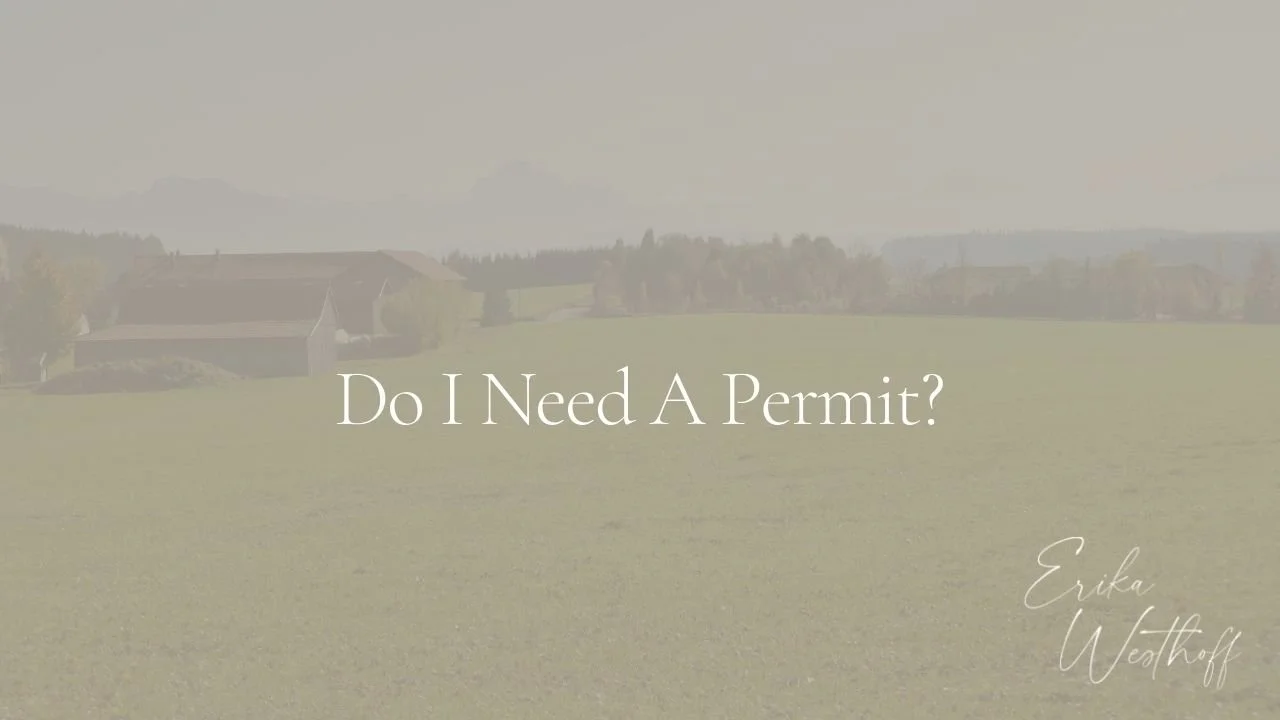Do I Need A Permit?
Working with your local county and city to gain permits is notoriously cumbersome…and some would say that’s putting it very mildly. Certainly, some cities and counties are better than others, but this is an area where YOU will undoubtedly spend some time and effort in order to be in compliance. It’s also important to know that this is an area that YOU as an owner will have to handle. This is not something a real estate agent can handle for you, so I thought I’d just give you a headstart on what you need to know in the process of purchasing and operating your property that aligns with your intended use.
These terms can get confusing and complicated. And, different cities and counties have different language and laws around each of them. This will require some due diligence on your part to understand your area. Here are the basics…
Land use is the term used to describe the human use of land. It represents the economic and cultural activities (e.g., agricultural, residential, industrial, mining, and recreational uses) that are practiced at a given place. Public and private lands frequently represent very different uses. It’s imperative that you find a property that has land use allowances that matches your intended use. You can learn more about that here: https://www.epa.gov/report-environment/land-use
Zoning - This is how the government regulates the land. You need to ask, what is your property zoned for and does that align with your intended use? To find out, search your city or county ordinances as many jurisdictions have their entire zoning code available online. If not online you may have to make a visit to the county or municipal clerk's office, the library, or the city attorney's office.
Conditional Use Permits CUP- (aka Special Use Permits) - What is a CUP? It’s a special permit obtained by a property owner giving them the right to operate their business. This is the county's way of ensuring the use is compatible with surrounding areas. For example, Alameda County is divided into zoning districts, which govern the land uses permitted on properties in each district. Some uses are prohibited, some are allowed outright, and some are allowed if the owner obtains a Conditional Use Permit. The permit may include conditions on the design, operation or duration of the use. CUP’s are often needed to be in compliance with your county. There’s lots more to learn on this topic and good place to start is here: https://www.epa.gov/report-environment/land-use
The exciting news is that if you are at the point in your journey where you are studying these topics then you are either a property owner already, or getting close! It’s such an exciting adn all encompassing journey!

